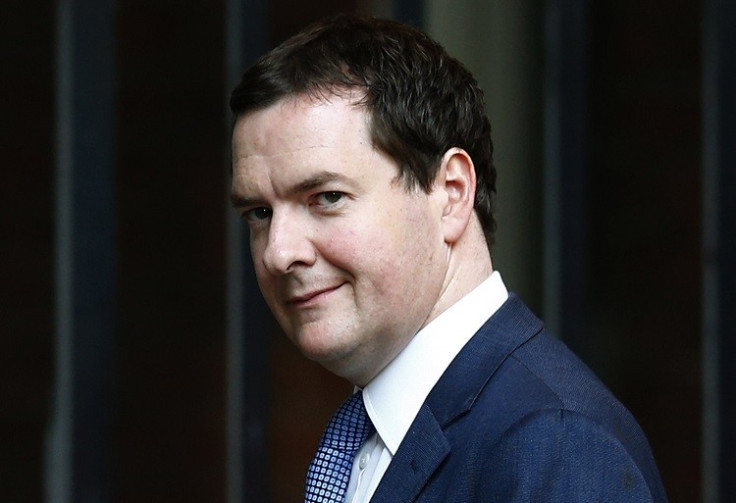George Osborne: Tentative UK Recovery Shows I'm Right on Austerity

Chancellor George Osborne claims he has been vindicated on his divisive public austerity programme as a raft of improving data from the UK economy shows "tentative signs of a balanced, broad-based and sustainable recovery".
Osborne is set to say in a London speech that the UK economy is "turning a corner", as growth accelerated from the first to second quarters and private industry figures show the services, construction and manufacturing sectors hitting new highs in the third quarter.
A number of leading economic forecasters, such as the Bank of England (BoE), International Monetary Fund (IMF), and OECD have all raised their UK growth estimates for 2013 as a result.
"This is a hard, difficult road we have been following, but it is the only way to deliver a sustained, lasting improvement in the living standards of the British people," Osborne will say.
"More tough choices will be required after the next election to find many billions of further savings and anyone who thinks those decisions can be ducked is not fit for government."
He will add: "Amazingly, even with the evidence we now have, there are still those calling for the government to abandon its economic plan in order to spend and borrow more. But to do so would be disastrous."
Prolonged crisis
Osborne has stripped billions of pounds off government spending since the coalition government took office in May 2010. He argued it was necessary in order to erase the structural deficit in public finances, built up under the previous Labour administration.
Originally he planned to do this within one parliament, but the eurozone crisis took hold in 2010 and dragged the UK economy back into recession, causing it to miss the original GDP forecasts Osborne had based his plans on.
As output fell more than expected, Osborne was forced to borrow more than he had planned. This meant he has extended his austerity programme until at least 2018.
Public sector debt was also supposed to fall as a portion of GDP by the end of the current parliament. However, it will now rise until a peak of 85.6% in the 2015/16 fiscal year.
Critics say Osborne was wrong to stick so rigidly to his austerity programme when the eurozone crisis unfolded and weighed heavily on the UK.
They say he should have delayed his public spending cuts and invested in the economy, to lift it out of the doldrums and negate the heavy impact on ordinary people of yet another financial crisis.
"Three wasted years of flatlining under George Osborne have left ordinary families worse off and caused long-term damage to our economy," said Chris Leslie MP, Labour's shadow financial secretary to the Treasury, responding to the chancellor's speech.
"This desperate attempt to rewrite history will not wash when on every test he set himself this chancellor's plan A has badly failed - on living standards, growth and the deficit."
Despite the recent uplift in economic data, wage growth is still well below price inflation. Official figures show UK wages have fallen in real terms to similar levels as those a decade ago.
Moreover, research by the Trades Union Congress (TUC) suggests there are also significant problems in the labour market, despite relatively low unemployment considering the recent slump.
Around half of all jobs created since the coalition government took office have been temporary work, such as those with zero-hours contracts, rather than secure, permanent employment.
© Copyright IBTimes 2025. All rights reserved.






















